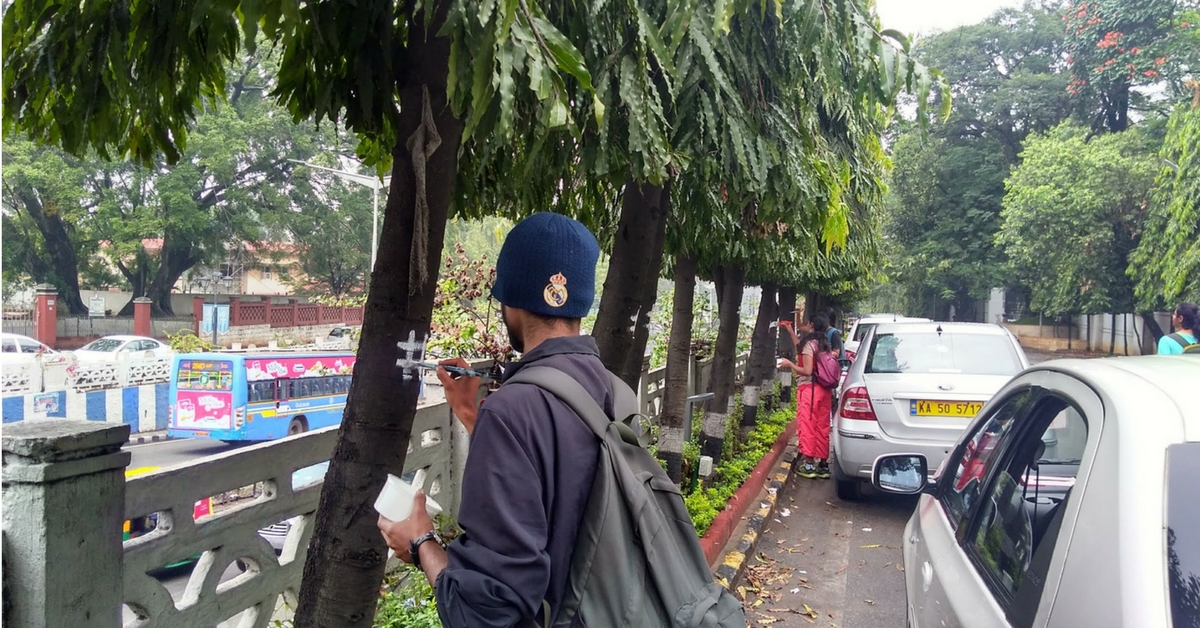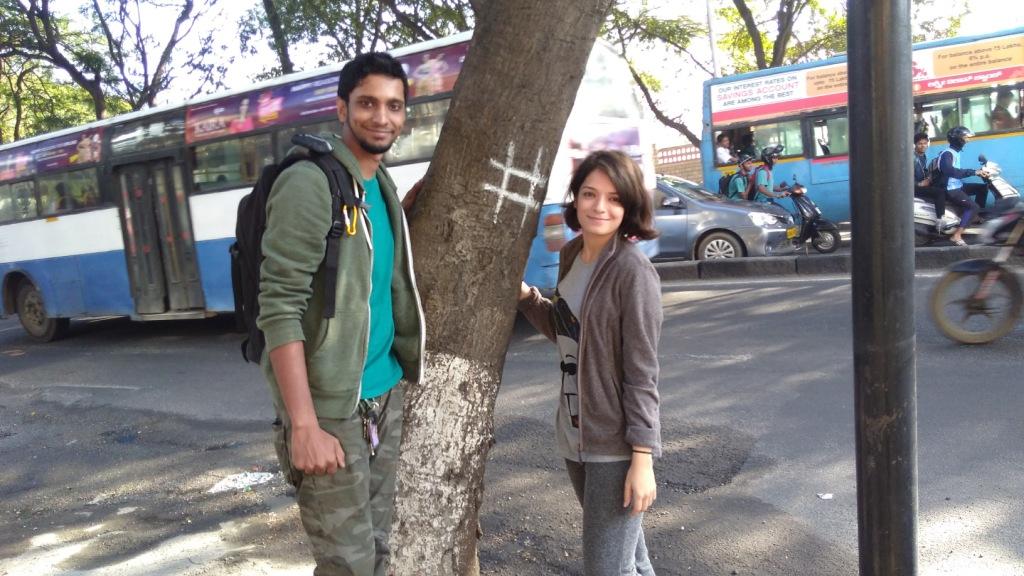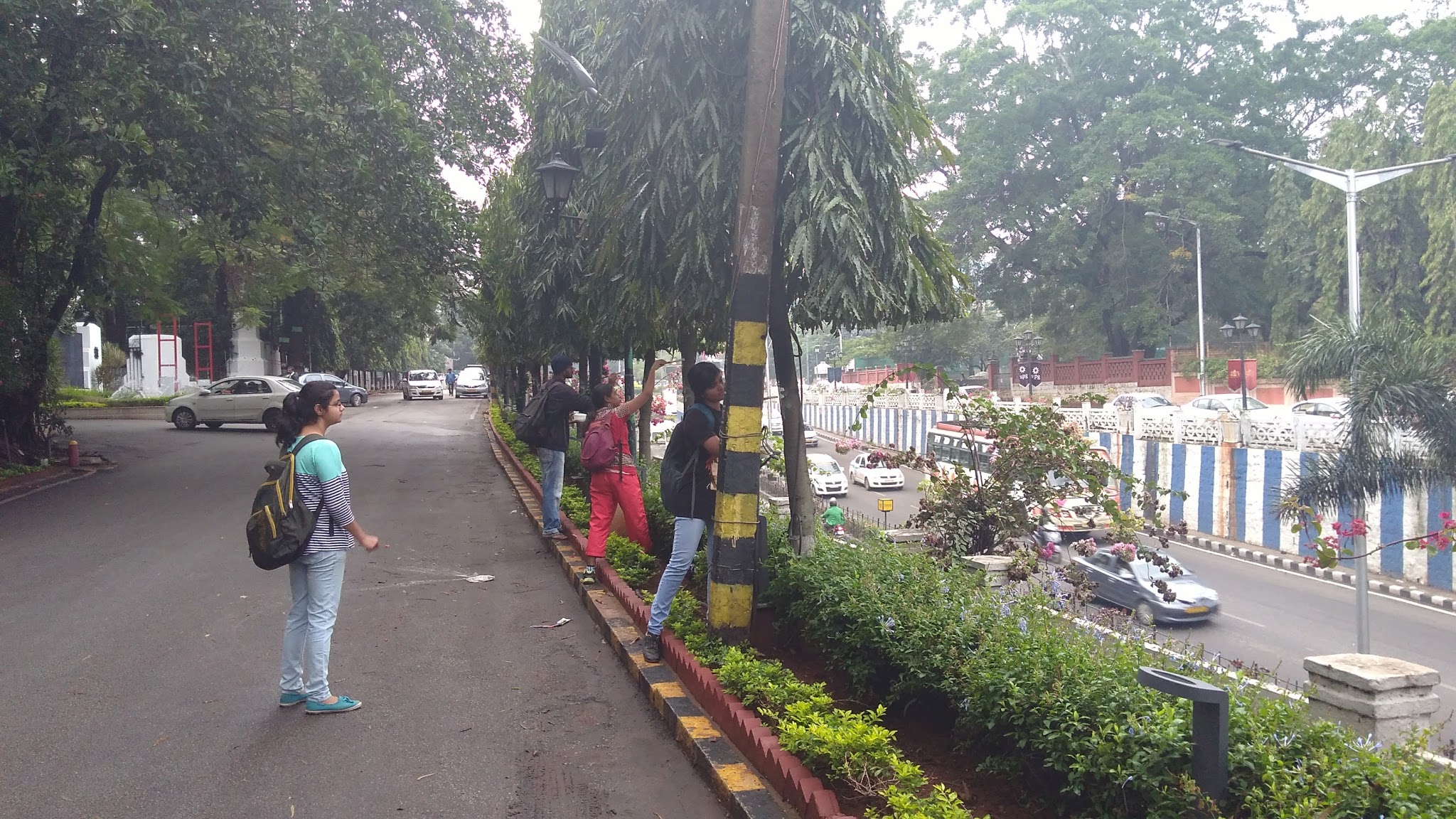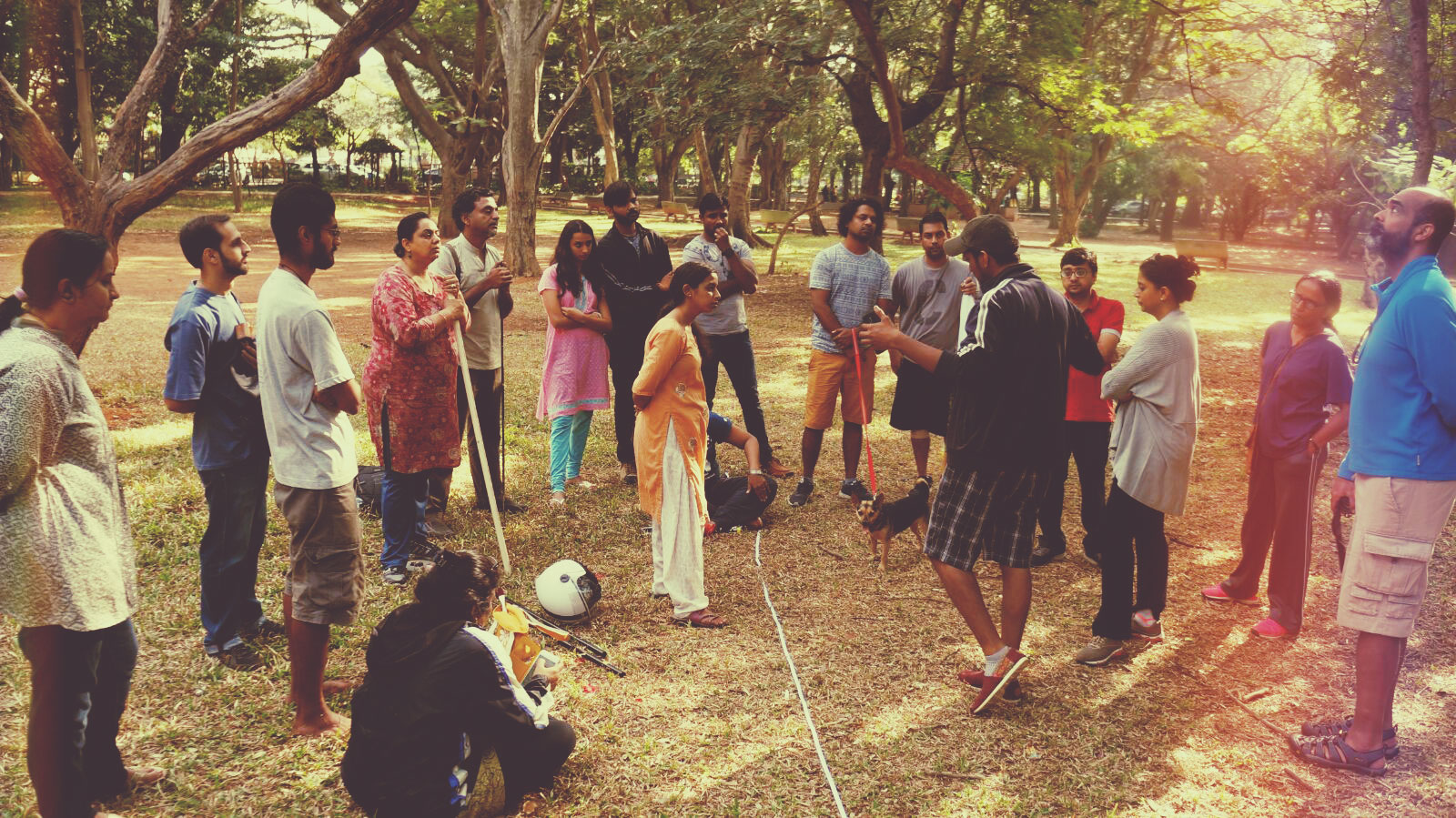You May Soon Talk to Trees, With Help From This Bengaluru-Based Environmental Organisation
Talking Earth, founded by Varun Hemachandran, utilizes research and data to offer sustainable solutions for dwindling greenery.

According to a BBMP report published this March, Bengaluru has lost over 17,000 trees in the last nine years. The city, long known as India’s Garden City, is now struggling to sustain its green cover, whether with vertical gardens or tree planting drives.
However, greening Bengaluru — or any city for that matter — requires more than this. Afforestation and greening initiatives can profit from careful planning and maintenance. How does one go about it? The answer lies in tree-mapping and data collection, says Varun Hemachandran. And maybe even a project that could get you talking to trees.
Varun is the founder of Talking Earth, a community initiative that uses data and technology-based tools to facilitate environmental protection.

Talking Earth was formed quite by accident, says Varun a former advertising professional and entrepreneur who moved to Bengaluru a year ago. Hoping to meet like-minded people in a new city, he joined the Citizens for Bangalore initiative and joined their campaigns, including the recent drive against building a steel flyover.
One of the initiatives Varun took up during the campaign was mapping the trees in the areas along the proposed flyover. Treemapping initiatives during the period led to the alarming revelation that not just 800, but over 2,000 trees would be chopped to make way for the steel structure. The project was ultimately scrapped in keeping with the overwhelming opposition by citizens.
Even as Varun and other volunteers celebrated the success, he took it upon himself to take the cause of Talking Earth forward. “We collect all forms of data, and not just trees,” says Varun. “We gather the data and put it on our mapping platform for people to access.” Along with tree-mapping, the organisation can also contribute to data gathering for income reports, demographic studies, rainwater data etc, and are also engaged in developing seed banks and holding workshops for communities interested in ecology and conservation.
The organisation has an active presence in three cities, including Bengaluru and Chennai, but the volunteers are from around the world, including Dubai and Netherlands.
Talking Earth’s tree-mapping initiatives have been one of their most impactful projects, and one that has earned them many followers.

Spotted a tree marked with a hashtag? It is likely to have been tree-mapped by the volunteers of Talking Earth. Tree-mapping is the process of recording and gathering data on trees, and can reveal a variety of information from the number of trees to its impact on soil conditions, rain, etc.
According to Varun, the right data can help government and environmental bodies plan their afforestation attempts more efficiently, citing the example of a massive plantation drive in Kolar. “In Kolar, the eucalyptus trees can absorb up to 90 litres of water and the farmers in the region are struggling with water crisis. If they had access to the right data, the havoc could have been avoided.”
You might also like: From Homes to Jungles, These Easy-To-Make Seed Bombs Are Enabling Indians to Grow Plants Anywhere
There are more examples — measuring rainfall can help determine rainwater harvesting measures for best results, income data can help government determine GDP numbers more efficiently, and organisations can use a variety of data to plan their campaigns.
Varun admits that the usefulness of any data depends on how well people can interpret the numbers. As a result, the Talking Earth team also strives towards making their data sets more accessible and simpler to understand and analyse. One of the methods the team hopes to execute for a more interactive approach to data analysis is Maitree, The talking Tree, a chatbot that will enable users to have a conversation with trees!
“We will have a chatbot connected to the physical trees and attach it to our datasets. It will be possible to have a conversation with trees, and the chatbot will be able to answer the questions. For instance, you can ask the tree if it had its lunch and the tree will respond with answers (on its nutrition levels). It is currently open to a limited number of testers and we will take around 6-7 months to launch a test pilot.”
The talking Earth team, spearheaded by Varun, is currently engaged in assessing and understanding the impact of its projects and planning actionable initiatives for the future.
The Talking Earth team also hopes to expand its scope by roping in volunteers to take the initiative forward in new areas.

With the volunteers spread all over India, and indeed around the world, the organisation holds special interactions among the peers. The Unite events are a change for volunteers to learn from each other’s experiences and brainstorm for future initiatives.
Volunteers can be from anywhere, and even a couple of volunteers from each locality can kick start the activities. While some volunteers can undertake their own tree-mapping and data-gathering ventures, others can contribute to areas like PR, social media engagement, operations etc.
You might also like: Nature Clubs Are a Great Way to Do Your Bit for the Planet. Here’s How You Can Start Your Own
Varun also aims to use Talking Earth’s work to engage and work productively with the government. “When we started, it so happened that we were in a conflict with the government,” he says. “But we have a rule. For every fight we have with the government, we will look for five ways in which we can work with them.”
The way forward for environment conservation lies in the careful planning and execution of initiatives like afforestation, rainwater harvesting and other conservation methods. Having the right data is crucial to their success, and community-driven initiatives like Talking Earth can go a long way in engaging citizens in the process of conserving our natural resources.
Check out the Talking Earth website, and to get in touch with Varun, click here.
Like this story? Or have something to share? Write to us: [email protected], or connect with us on Facebook and Twitter.
NEW: Click here to get positive news on WhatsApp!

Similar Story

From Kamathipura to Int’l Colleges: 2 Friends Changed Everything For Daughters of Sex Workers
Kranti — an NGO started by Robin Chaurasiya and Bani — provides shelter, education and opportunities for daughters of sex workers and survivors of human trafficking between the ages of 12 and 21.
Read more >
If you found our stories insightful, informative, or even just enjoyable, we invite you to consider making a voluntary payment to support the work we do at The Better India. Your contribution helps us continue producing quality content that educates, inspires, and drives positive change.
Choose one of the payment options below for your contribution-
By paying for the stories you value, you directly contribute to sustaining our efforts focused on making a difference in the world. Together, let's ensure that impactful stories continue to be told and shared, enriching lives and communities alike.
Thank you for your support. Here are some frequently asked questions you might find helpful to know why you are contributing?


This story made me
-
97
-
121
-
89
-
167












